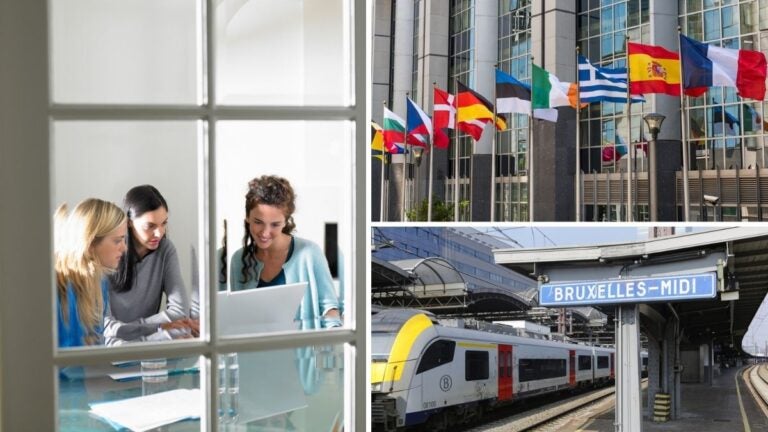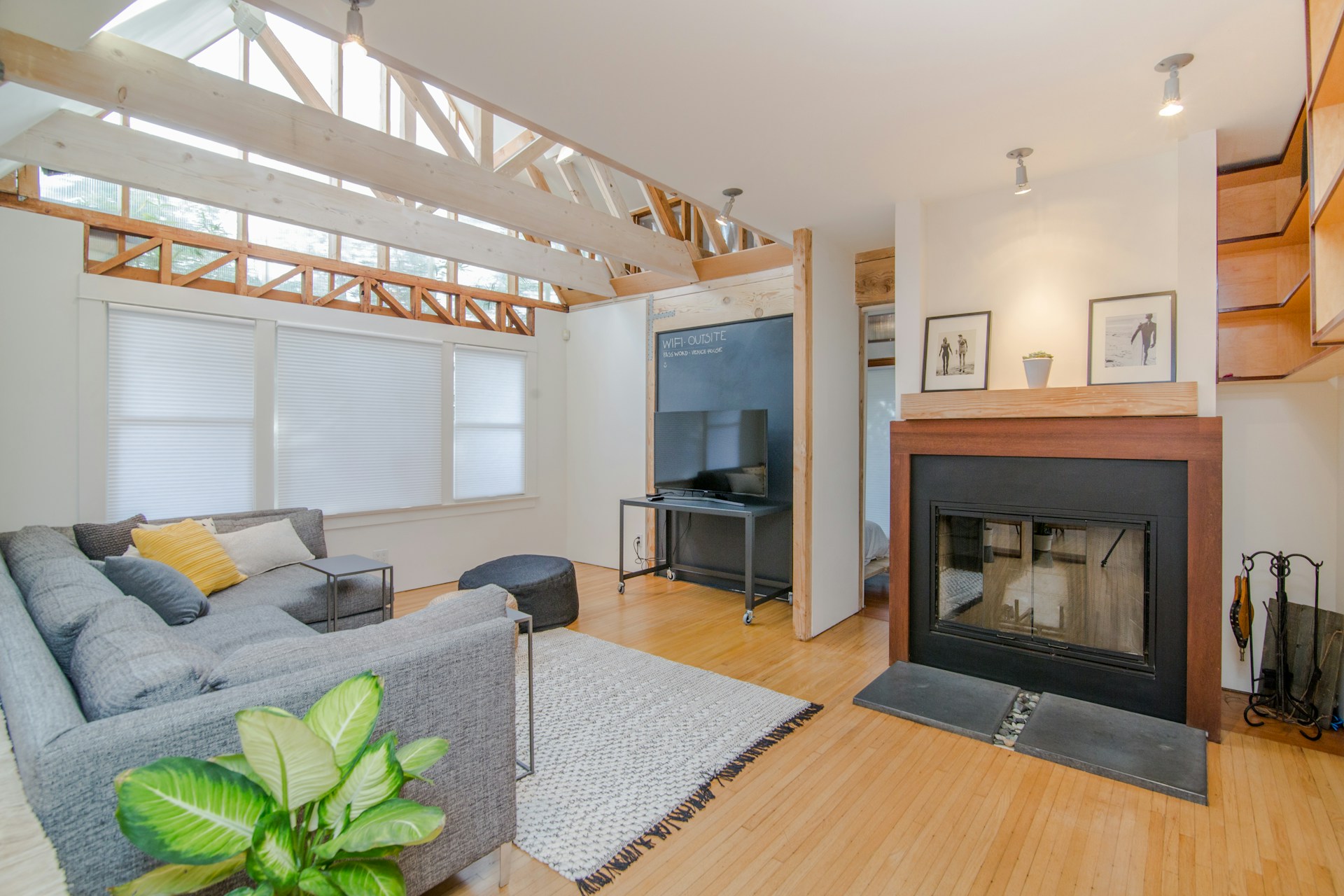Live in Brussels: Learn advantages, disadvantages & costs
Brussels is an ideal place to live, thanks to its quality of life, job opportunities, and the nature that surrounds it.
Ever wondered what it’s like to live in a city like Brussels? Here we’ll cover some key insights to help guide your plans to move abroad. In this article, we’ll take a look at daily life in the Belgian capital, along with its healthcare system, job market, and educational opportunities.
The city offers a multicultural atmosphere in all areas, thanks to the fact that it is home to many different nationalities, as it is also the capital of the European Union.
Another thing to keep in mind is that speaking the right languages makes social, work, and academic life much easier. But do you know which ones are most useful for living in Brussels? Let’s break it down for you.
Quality of life in Brussels
Brussels scores well for quality of life, thanks to its strong education system, reliable healthcare, efficient public transport, and family-friendly lifestyle compared to other Belgian cities.
On top of that, Brussels has one of the strongest economies in the region, with public and private sectors working hand in hand. This balance supports well-managed services, healthcare, education, and transportation. Let’s take a closer look at what life in Brussels is really like.

1. Public and private education system
Education is one of the key factors when it comes to measuring quality of life in Brussels. Early schooling is mostly free and compulsory, and classes are often taught in up to three languages depending on the school or university.
- In terms of higher education, most universities are public and recognized for their high quality.
- The main areas in which Brussels’ educational system excels are physics, engineering, social sciences, statistics, geography, and public administration.
Brussels also has private institutions as well as schools funded by the state but managed privately. This diversity in the education system makes the city especially appealing to many international students.
But how easy is it to get into a university in Brussels? Let’s talk about the requirements:
- Public universities do not require an entrance exam, and you must have a high school diploma.
- Language: You’ll need to check whether your degree program is taught in Dutch or French. While English is essential, universities usually require at least a B2 level in the language of instruction.
Some government programs offer scholarships for Latin American students, but applicants must meet all the requirements: language proficiency, a translated diploma in French, English, or Dutch, a student visa, proof of financial means, health insurance, and a clean criminal record.
For master’s programs, you’ll also need to submit a motivation letter, your CV, and, if you’re applying for art, design, or architecture, a portfolio of your work.
2. Healthcare is among the best in the region
Belgium’s healthcare system is based on mandatory insurance that covers medical services for the entire population. Over the years, the country has strengthened the system to the point where it now stands out compared to many others.
According to the OECD’s Better Life Index, the average life expectancy in Belgium is 82 years, one year above the global average. This reflects positively on the public health policies the country has put in place.
Healthcare users can choose between public and private insurance, both of which typically reimburse 60 to 70% of medical costs. Waiting times are short, and the efficiency of medical services is one of the most appreciated aspects of healthcare in the city.
The requirements for receiving healthcare in Brussels are:
- If you are a member of the European Union, you only need to submit your European Health Insurance Card to access any medical service.
- If you are not a member of the European Union, you will need to apply for a residence visa, present your passport, and provide proof of address.
- Keep in mind that you won’t have access to Brussels’ public healthcare system during your first six months of residency, so it’s essential to have private health insurance until you’re eligible.
3. Transportation: An efficient and social system
Transport in Brussels is efficient and punctual, with plenty of options to get around the city. You can choose from the metro, trams, buses, trains, or even bike rentals.
- Metro: The city has four metro lines connecting the city center with the suburbs.
- Tram: Perfect if you are traveling around the city center.
- Buses: The best complement to other means of transport, covering areas not served by the metro or tram.
- Trains: You can use them to travel to other nearby cities or to the outskirts of the Belgian capital.
- Bicycles: Some companies offer bike rentals as an alternative way to get around the city. You can rent a bike for a day at $1.75, a week for $8.70, or even get a monthly plan for up to $38.50. Be sure to check all the rules and payment terms before renting.
The city also looks out for its most vulnerable residents, offering free transport passes to seniors, people with disabilities, children under 12, and low-income individuals. Students can get an annual pass for around $13.
- Payment methods: You will need to get a MOBIB card, which costs $5, and can be loaded with single rides or passes for hours or days. It works across all forms of transport in Brussels. For example, 10 trips cost about $15.
- You can also pay by credit card, which you swipe through one of the card readers and you’re done.
- Alternatively, there are single tickets that allow you to travel for $3 for 60 minutes.
4. Access to housing: A stable market in Brussels
Finding a rental in Brussels is a bit easier than in other major capitals like Paris or London. Buying a property, however, is still quite expensive, as is the case in most of Europe.
For example, home prices in the city range from $275,000 to $440,000. Prices depend on the location, condition, and whether the property is new or resale. If you are buying a house and paying in full, there are no document restrictions.
However, if you need a mortgage, you must have defined immigration status within the country in order to open a bank account.
Now let’s talk about rentals, which tend to be more affordable. For travelers or digital nomads, there are individual apartments and co-living spaces that provide everything you need to live and work comfortably. Prices range from $550 to $990 but can vary depending on the area.
There are also cheaper options where you can save money by sharing common areas in a house. You get your own private room and access to all the usual home amenities for a maximum cost of $660.
If you are looking for a large, well-equipped home in a good location, the cost can rise significantly to $1,500.
5. Dynamic employment and high salaries
If you want to work in Brussels, especially as a Latin American, you will need a special permit that allows you to live and work in the country. You will also need a valid passport, pass a professional skills exam, and provide medical and educational certificates.
Salaries are adjusted to the country’s social and economic context. For 2025, the minimum salary for a well-qualified professional is $4,070, while managerial positions earn nearly twice that.
Language is important when entering the job market in Brussels, where French, Dutch, and English are spoken. Learning one of these languages will also make daily life in the city much easier.
6. Extensive internet coverage and mobile plans for digital nomads
Internet in Brussels has wide coverage and modern infrastructure. You should have no problems working remotely from the city.
Colivings are equipped with high-speed Wi-Fi networks and spaces where digital nomads will feel comfortable.
There are also mobile networks that offer special plans for remote workers, such as hotspots that provide wireless Wi-Fi for working from anywhere or unlimited data. eSIMs are especially useful here, as many foreigners prefer to arrive in Brussels already connected.
Holafly offers monthly plans with unlimited data, so you never lose your connection. Pick the plan that works best for you and keep your journey going without interruptions.
Important: If you are a frequent traveler and want to stay connected without worrying about expensive roaming or looking for a new SIM at every destination, Holafly’s subscription plans are for you. With a single eSIM, enjoy internet in more than 170 countries for a fixed price and no surprises on your bill. Travel without limits and connect easily and securely! 🚀🌍

Advantages of living in Brussels
Being in a multicultural city is a real advantage in such a fast-paced environment. Social connections help ensure life isn’t all about work, and they can also open doors to better career opportunities.
Areas like healthcare, education, housing, and labor policies are well-regulated for all residents, especially in Brussels. The job market has its ups and downs, but growing international investment is helping create new opportunities on a regular basis.
Public transport and biking make it easy to get around the city without wasting time in traffic. You can also travel abroad conveniently using train lines that connect Brussels to nearby countries.
Disadvantages of living in Brussels as a foreigner
Belgium’s capital faces some socio-economic challenges that stem from its multicultural nature, creating inequalities due to diverse social needs. Here are some downsides to living in a city like Brussels:
- Access to housing: Housing costs are high in Brussels. Although the real estate market is relatively stable, both rental and purchase prices continue to rise.
- Health and education: Both areas are still being improved for the benefit of society as a whole. Over the past decade, Belgium has seen significant growth in investment and inclusion programs, achieving notable progress. However, there is still work to be done before cities like Brussels can fully serve their entire population.
- Languages: As we mentioned, languages are important for getting settled in the city. However, it can be confusing to know which language is most useful, since it depends on the work, education, and social circles you engage with in Brussels.
Frequently asked questions about living in Brussels
There is no exact amount you need to live in a city like Brussels, as it depends on factors such as your lifestyle, where you live, and your preferred mode of transport. However, it is estimated that a person needs at least $2,750 per month to cover basic expenses.
You will need a valid passport, a special permit to live and work, certified knowledge of French, English, or Dutch, and your academic documents translated. It is also important to check any additional requirements based on your nationality.
Yes, healthcare is public and free, but you need to join the system through insurance that provides coverage for various specialties and emergencies. As an immigrant, you must have your residency status regularized to access the public system, or otherwise have travel insurance.
Saint-Gilles, Elsene, Ixelles, Anderlecht, the City of Brussels, the Matongé neighborhood, and the Sablon area are all popular choices among locals and expats alike, thanks to their calm atmosphere and strategic locations near universities and the city’s main tourist areas.
Public transport in Brussels is not free in general. However, there are some special programs offering free access for vulnerable and low-income groups, such as children, students, people with disabilities, and seniors. Otherwise, a regular ticket costs $2.65.





 Language
Language 


















 No results found
No results found








